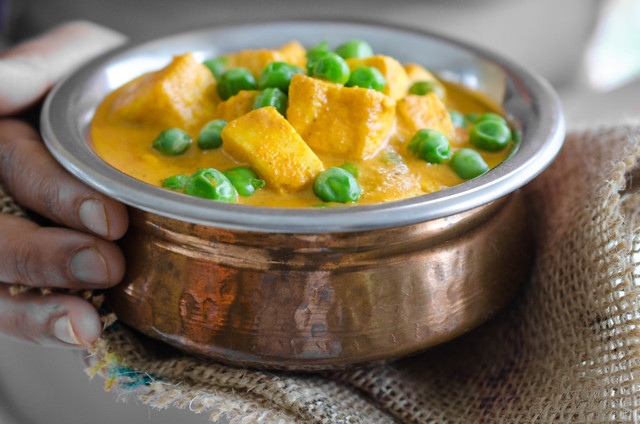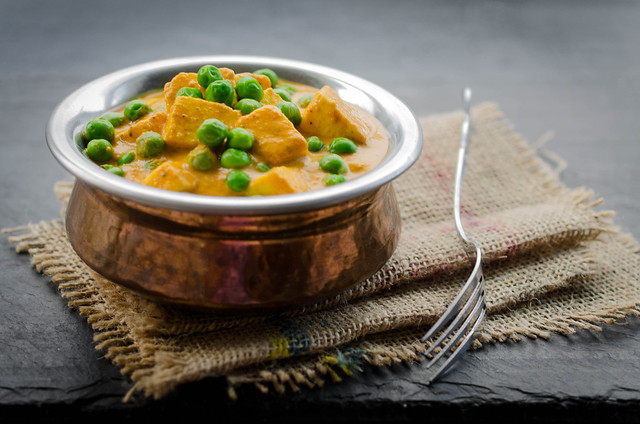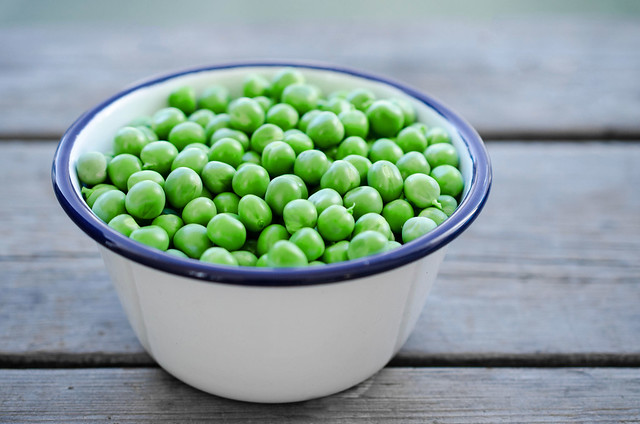I have always wondered why some people like gardening more than others. What is it that makes people perfectly happy to grub around in the dirt, get excited when talking about the differences between sheep and cow manure, look anxiously at the black clouds, hoping against hope that hail won't wreck this season's vegetables, spend hours researching tomato plant rot, guard their trowels and tools jealously, and rarely want to go on vacation because the garden might suffer...
Sounds familiar? These guys are the gardeners. I wrote a couple weeks ago about them in my post for the Canadian Food Experience Project.
One of the reasons that Kay gardens is because his memories of his mother's garden. Every time he sees Adz picking and eating a pea pod, straight from the plant, he remembers his own days of eating sweet, fresh peas, straight from his mum's garden. And I have similar memories of eating produce from my mother's garden too, though, not peas. Okra and eggplants, perhaps.
But we did have a good harvest of peas this year, and I even managed to save some from Adz's grabby hands :)
One of the reasons that Kay gardens is because his memories of his mother's garden. Every time he sees Adz picking and eating a pea pod, straight from the plant, he remembers his own days of eating sweet, fresh peas, straight from his mum's garden. And I have similar memories of eating produce from my mother's garden too, though, not peas. Okra and eggplants, perhaps.
But we did have a good harvest of peas this year, and I even managed to save some from Adz's grabby hands :)
A really popular North Indian dish is this Paneer Muttar (also known as Matar Paneer). The first time I heard about it was, weirdly, from a Hindi textbook.
In my school, we had the option of doing several languages. India, being a vast country, has several languages and dialects, and each state has its own language. So, for example, I grew up speaking Konkani, which is my mother tongue and we did Kannada (the state language) and English at school, starting from Grade 1. In Grade 5, we started Hindi (the national language). I still remember our Hindi teacher, who used to make us all stand and recite the Hindi numerals, one by one, after which we sat down. Ek, do, teen, chaar, paanch... (1, 2, 3, 4, 5...) There was this one time I got kicked out of class for being a brat, and I was so happy because I thought I had missed the usual number counting. But alas, life was not kind to me that day, as she forgot to do the whole number thing and only remembered at the end of the class... at which point I got sent out again for not remembering my numbers. Oh, happy days, indeed.

Back to Paneer Muttar though, and like I mentioned, weirdly, it was a lesson in one of our Hindi textbooks. It was a whole story about these two girls who wanted to cook with their mother, and the mother decided to make Matar Paneer. The lesson proceeded to give the entire recipe, and of course, all of us South Indian girls thought it was the most exciting dish, ever! We kept pestering my mum to make it, but she never did.
So whenever I now make Matar Paneer, I remember my Hindi lessons. Unfortunately, that recipe from the lesson is long lost, but this one certainly is excellent.
(Printable Recipe)
2 tablespoons unscented oil
1 medium onion, diced
3 cloves garlic, crushed
1 inch piece of ginger, grated
1 - 2 hot green chillies, chopped
4 fresh tomatoes, chopped (or 1, 400 ml can whole plum tomatoes, drained)
1/2 cup hot vegetable stock or water
1/2 cup half and half or coffee cream (10% or 18 %cream)
1/2 teaspoon kasuri methi (dried fenugreek leaves)
500g paneer, cubed
2 cups fresh peas, podded
Boiling water to blanch the peas
Salt and pepper to taste
Spice Mix:
1/2 teaspoon ground cumin
1/2 teaspoon ground turmeric
1/2 teaspoon mild cayenne pepper
1 teaspoon ground coriander
1 teaspoon garam masala
Method:
Place the oil in a saute pan, and add the onions. Fry for about 10 minutes, on a medium heat until soft and just beginning to colour around the edges. Add the garlic, ginger and green chillies and fry for another minute.
Add the chopped tomatoes (or canned) and fry together for about 5 more minutes. Add the spice mix, and stir to combine. Cook on a medium low heat for another ten minutes or so, until the rawness of the spices has disappeared.
Take this onion masala off the heat, and puree it to a fine paste, either using a hand blender or a normal stand blender.
Return the paste to the pan, and cook for a few more minutes, until the masala is thick. Add the hot vegetable stock or water, and stir. Add the cream and gently heat through, without letting the sauce boil. Season to taste with salt and pepper.
Stir in the kasuri methi (dried fenugreek leaves) and the cubed paneer and simmer on a gentle heat for a few more minutes.
Meanwhile, bring a large pot of water to the boil, and add a small handful of salt. Add the peas, and blanch for about 3 - 4 minutes, until the peas are tender and cooked through. Drain.
Add the peas to the sauce, and gently stir to combine. Simmer for an additional minute or two, adjusting the seasoning as you go. Serve hot with rice, roti or naan.












I love a good bit of paneer too. There is something about it which makes a meal taste more substantial despite the lack of meat. Indian food does vegetarian the best IMO.
ReplyDeletei dont know why I dont make as many paneer recipes - your version looks so goood.
ReplyDeleteThis looks delicious! I have been looking at recipes for making paneer ... this would be such a great way of using it! Thanks!
ReplyDeleteYay! This is the dish that got me hooked on Indian food, more than fifteen years ago! And I've never found a recipe for it before that I wanted to try.
ReplyDeleteSo happy. :)